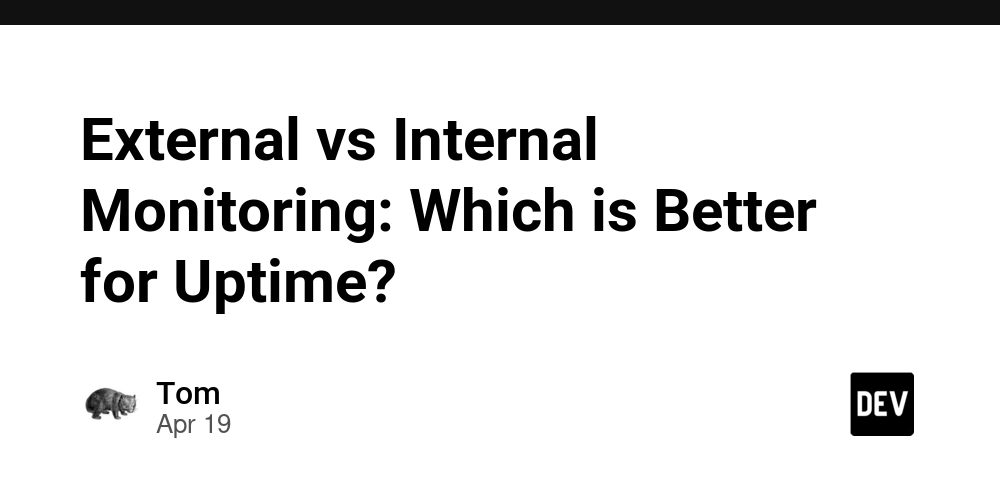Navigating Web Hosting Pitfalls: Key Insights for U.S. Digital Entrepreneurs
Navigating Web Hosting Pitfalls: Key Insights for U.S. Digital Entrepreneurs Choosing the right web hosting provider can make or break your digital business. Whether you’re a freelancer, a web developer, part of a web agency, or running an eCommerce venture, the performance of your website directly impacts user experience and conversion rates. Unfortunately, many entrepreneurs stumble upon common pitfalls when selecting hosting solutions, leading to frustration and lost revenue. Here’s a guide to help you navigate these challenges effectively. Understand Your Hosting Needs Before diving into the sea of hosting options, you must first understand what your specific needs are. Here are some crucial factors to consider: Traffic Volume: If you anticipate high traffic, shared hosting may not suffice. Look into VPS or dedicated hosting options, which offer greater reliability and speed. Type of Website: An eCommerce site requires different resources compared to a portfolio or blog. Ensure the hosting plan can accommodate your website’s requirements. Growth Potential: Choose a provider that allows for scalability. As your business grows, so will your hosting needs. By clearly defining your requirements, you can avoid the trap of overpaying for unnecessary features or underestimating your needs, which can lead to performance issues. Common Mistakes to Avoid When selecting a hosting provider, certain missteps can lead to headaches down the road. Here are some common mistakes to keep in mind: Ignoring Performance Metrics: Don’t just look at the price. Investigate uptime percentages, load times, and server response rates. A cheaper option that frequently goes down will cost you more in the long run. Aim for a provider with at least 99.9% uptime. Neglecting Customer Support: Look for a host that offers 24/7 support. You don’t want to be stuck with a website issue late at night without help available. Read reviews and test their support channels before making a decision. Overlooking Security Features: With the rise of cyber threats, security is paramount. Ensure your hosting provider offers SSL certificates, DDoS protection, and regular backups. A single security breach can lead to data loss and damage your reputation. Not Considering Location: The physical location of your server can affect load times. If your target audience is primarily in the U.S., choose a hosting provider with data centers located here for quicker response times. Skipping the Fine Print: Always read the terms and conditions. Some providers have hidden fees or complicated cancellation policies that can catch you off guard later. Choosing the Right Type of Hosting The right type of hosting can significantly impact your website’s performance. Here’s a quick overview of the most common hosting types: Shared Hosting: Ideal for beginners and small websites. It’s affordable but can lead to slower performance if other sites on the server consume resources. VPS Hosting: Offers a middle ground between shared and dedicated hosting. It provides dedicated resources, improving performance and reliability. For those looking to scale without breaking the bank, VPS Hosting is often a smart choice. Dedicated Hosting: This gives you an entire server dedicated to your website, ensuring maximum speed and security. It’s best for high-traffic sites but comes with a higher price tag. Cloud Hosting: A flexible solution that can grow with your needs, cloud hosting distributes your data across multiple servers, offering excellent uptime and scalability. Final Thoughts Navigating the world of web hosting doesn’t have to be daunting. By understanding your specific needs, avoiding common pitfalls, and choosing the right hosting type, you can set your digital business up for success. Remember, investing time and resources into selecting the right hosting provider pays off in the long run. Your website’s performance, security, and reliability are critical to ensuring a positive experience for your visitors and ultimately driving your business forward. Make informed decisions, and you’ll reap the benefits of a well-hosted website.

Navigating Web Hosting Pitfalls: Key Insights for U.S. Digital Entrepreneurs
Choosing the right web hosting provider can make or break your digital business. Whether you’re a freelancer, a web developer, part of a web agency, or running an eCommerce venture, the performance of your website directly impacts user experience and conversion rates. Unfortunately, many entrepreneurs stumble upon common pitfalls when selecting hosting solutions, leading to frustration and lost revenue. Here’s a guide to help you navigate these challenges effectively.
Understand Your Hosting Needs
Before diving into the sea of hosting options, you must first understand what your specific needs are. Here are some crucial factors to consider:
- Traffic Volume: If you anticipate high traffic, shared hosting may not suffice. Look into VPS or dedicated hosting options, which offer greater reliability and speed.
- Type of Website: An eCommerce site requires different resources compared to a portfolio or blog. Ensure the hosting plan can accommodate your website’s requirements.
- Growth Potential: Choose a provider that allows for scalability. As your business grows, so will your hosting needs.
By clearly defining your requirements, you can avoid the trap of overpaying for unnecessary features or underestimating your needs, which can lead to performance issues.
Common Mistakes to Avoid
When selecting a hosting provider, certain missteps can lead to headaches down the road. Here are some common mistakes to keep in mind:
Ignoring Performance Metrics: Don’t just look at the price. Investigate uptime percentages, load times, and server response rates. A cheaper option that frequently goes down will cost you more in the long run. Aim for a provider with at least 99.9% uptime.
Neglecting Customer Support: Look for a host that offers 24/7 support. You don’t want to be stuck with a website issue late at night without help available. Read reviews and test their support channels before making a decision.
Overlooking Security Features: With the rise of cyber threats, security is paramount. Ensure your hosting provider offers SSL certificates, DDoS protection, and regular backups. A single security breach can lead to data loss and damage your reputation.
Not Considering Location: The physical location of your server can affect load times. If your target audience is primarily in the U.S., choose a hosting provider with data centers located here for quicker response times.
Skipping the Fine Print: Always read the terms and conditions. Some providers have hidden fees or complicated cancellation policies that can catch you off guard later.
Choosing the Right Type of Hosting
The right type of hosting can significantly impact your website’s performance. Here’s a quick overview of the most common hosting types:
Shared Hosting: Ideal for beginners and small websites. It’s affordable but can lead to slower performance if other sites on the server consume resources.
VPS Hosting: Offers a middle ground between shared and dedicated hosting. It provides dedicated resources, improving performance and reliability. For those looking to scale without breaking the bank, VPS Hosting is often a smart choice.
Dedicated Hosting: This gives you an entire server dedicated to your website, ensuring maximum speed and security. It’s best for high-traffic sites but comes with a higher price tag.
Cloud Hosting: A flexible solution that can grow with your needs, cloud hosting distributes your data across multiple servers, offering excellent uptime and scalability.
Final Thoughts
Navigating the world of web hosting doesn’t have to be daunting. By understanding your specific needs, avoiding common pitfalls, and choosing the right hosting type, you can set your digital business up for success. Remember, investing time and resources into selecting the right hosting provider pays off in the long run. Your website’s performance, security, and reliability are critical to ensuring a positive experience for your visitors and ultimately driving your business forward. Make informed decisions, and you’ll reap the benefits of a well-hosted website.


.jpg)

























![[Webinar] AI Is Already Inside Your SaaS Stack — Learn How to Prevent the Next Silent Breach](https://blogger.googleusercontent.com/img/b/R29vZ2xl/AVvXsEiOWn65wd33dg2uO99NrtKbpYLfcepwOLidQDMls0HXKlA91k6HURluRA4WXgJRAZldEe1VReMQZyyYt1PgnoAn5JPpILsWlXIzmrBSs_TBoyPwO7hZrWouBg2-O3mdeoeSGY-l9_bsZB7vbpKjTSvG93zNytjxgTaMPqo9iq9Z5pGa05CJOs9uXpwHFT4/s1600/ai-cyber.jpg?#)












































































































































![[The AI Show Episode 144]: ChatGPT’s New Memory, Shopify CEO’s Leaked “AI First” Memo, Google Cloud Next Releases, o3 and o4-mini Coming Soon & Llama 4’s Rocky Launch](https://www.marketingaiinstitute.com/hubfs/ep%20144%20cover.png)






































































































































































































![Rogue Company Elite tier list of best characters [April 2025]](https://media.pocketgamer.com/artwork/na-33136-1657102075/rogue-company-ios-android-tier-cover.jpg?#)







































































_Andreas_Prott_Alamy.jpg?width=1280&auto=webp&quality=80&disable=upscale#)






























































































![What’s new in Android’s April 2025 Google System Updates [U: 4/18]](https://i0.wp.com/9to5google.com/wp-content/uploads/sites/4/2025/01/google-play-services-3.jpg?resize=1200%2C628&quality=82&strip=all&ssl=1)










![Apple Watch Series 10 Back On Sale for $299! [Lowest Price Ever]](https://www.iclarified.com/images/news/96657/96657/96657-640.jpg)
![EU Postpones Apple App Store Fines Amid Tariff Negotiations [Report]](https://www.iclarified.com/images/news/97068/97068/97068-640.jpg)
![Apple Slips to Fifth in China's Smartphone Market with 9% Decline [Report]](https://www.iclarified.com/images/news/97065/97065/97065-640.jpg)































































































































